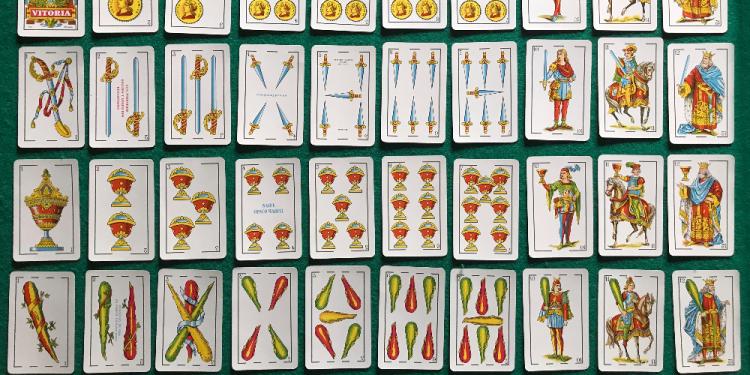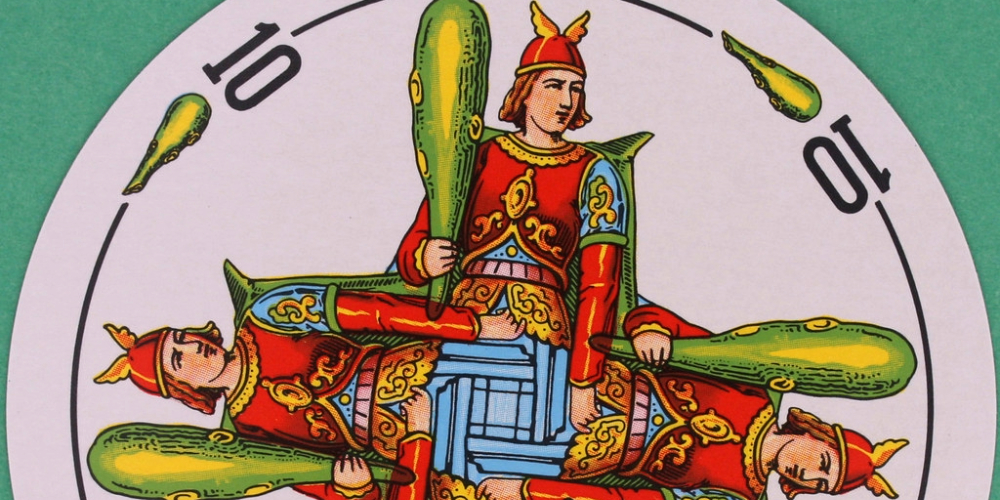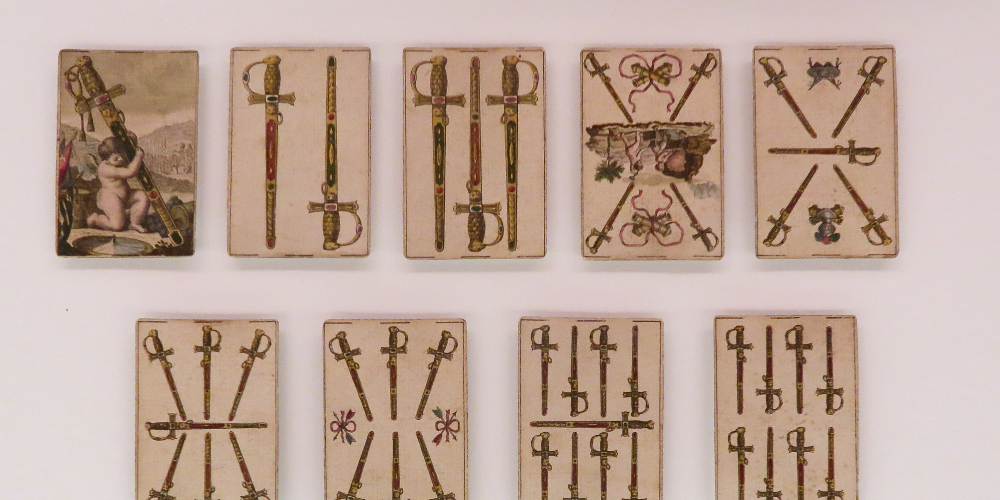Sakla – How To Play And Win This Philippines Card Game
Posted: November 2, 2023
Updated: November 3, 2023
Having been bought to their shores by the Spanish in the late 16th century, the Filippinos gradually evolved the Latin version of Spanish tarot and made it into their most popular card game, Sakla. Though the game is technically illegal today, it's still played throughout the country, especially at funerals, where some of the betting proceeds go to the family of the deceased.

The Philippines boasts a rich and vibrant history, evident in the traditional games enjoyed by its people. It’s worth noting that gambling has deep roots in Filipino culture, dating back to the era of Spanish colonization. Cockfighting, a centuries-old practice, is a beloved form of gambling in the country.
Likewise, horse racing offers both excitement and monetary opportunities for enthusiasts, in particular for those betting online via platforms like Everygame Casino. Filipinos also have a strong affinity for betting on various sports, with basketball, boxing, and football among the most favored options. Yet, when it comes to culturally significant and colorful games, few can rival the unique allure of “Sakla.”
What Is Sakla?
Sakla represents just one of many ways Filipinos engage in gambling, but its influence on local life and culture is profound. So, what is Sakla, and why does it hold such popularity among locals? To grasp the essence of Sakla, one must first delve into its meaning and the customs associated with it. Similar to Mahjong, this game carries a deeper significance and plays a distinctive role in Philippine culture.
Sakla As A Cultural Phenomenon
While some games are primarily played for financial gain, others are organised due to their cultural or societal significance. Consider Sakla, one of the most widespread forms of gambling in the country. Alongside bingo and other card games, Sakla is commonly played at wakes. Sakla is a local variant of the Spanish tarot and is a favoured form of entertainment during these events to keep attendees engaged and awake.

It is often featured at wakes because the host family receives a share of the proceeds from the game. According to prominent Filipino sociologist Professor Randolf David, Sakla serves specific functions and helps keep mourners present during such gatherings. Despite its transformation into a profitable business, the game continues to offer valuable benefits that cannot be ignored.
The Game Is Illegal
According to online gambling news in the Philippines, the popularity of Sakla has led some enterprising individuals to organise “fake wakes” solely to host the game, contributing to the game’s growth and notoriety. Consequently, law enforcement agencies have taken an interest in regulating the game, and it is currently considered illegal under various laws in the Philippines.
However, many authorities often ignore these activities, acknowledging that the games are hosted during wakes and that a portion of the proceeds aid grieving families. The following section will outline the fundamental rules to remember when engaging in the game.
How To Play Sakla
So, what are the fundamental rules and steps to play Sakla, a popular Filipino card game rooted in Spanish tarot? While there is no direct English translation for Sakla, it’s essential to understand that it’s a card game that does not adhere to the traditional card rankings found in games like Pusoy Dos.
To play Sakla, you’ll require a Sakla card deck, which includes Jokers, with the exclusion of the eights and nines. In this game, you’ll be dealing with four suits, each featuring three picture cards: the king, the horse, and the jack. Additionally, there are numeral cards ranging from 1 to 9 in each of the four suits. The four suits in the deck are swords, clubs, cups, and coins. Kings, horses, and jacks also have numerals from 10 to 12 in their corners. Notably, the suits in Sakla feature various breaks in their borders: swords (three breaks), clubs (two breaks), cups (one break), and coins (no breaks).
On the game board, you’ll find five combinations for each suit, offering a total of 20 possible combinations to choose from. When playing Sakla, it’s crucial to pay attention to potential pairings or combinations. For instance, the King and Ace, Four and Five, Two and Three, Six and Seven, and Horse and Jack are some examples. The first combination revealed during the game, such as the Two and Three of Coins, becomes the winning combo. When playing for real money, you can place different wagers on various combinations, with the maximum bet determined by the operator. In Sakla, the typical payout ratio is 1 to 18.
Sakla As A Casino Game
This game is not confined to local communities; it’s also enjoyed in regulated casinos. In a casino setting, Sakla follows standardised rules. The game begins with the online casino dealer announcing, “Place your bets.” Subsequently, the dealer loads the cards into an automated shuffling machine.

Once all bets are placed, the dealer declares, “No more bets.” The Sakla dealer then reveals one card at a time, starting from the rear of the playing deck. The objective is to find a matching card. The initial matching pair of cards, such as the Two and Three of Coins, establishes the winning combination. When this occurs, the casino dealer announces the winning combination.
Sakla Compared To Other Card Games
In contrast to many other card games, Sakla does not demand intricate skills, eliminating the need for players to commit to memory specific strategies or practise particular techniques. The responsibility for selecting the initial matching pair in the game falls squarely on the player’s shoulders. Some participants opt for a random combination, while others adhere to personal rituals when choosing a pair to bet on in Sakla.
Unlike other popular table games like blackjack, baccarat, and poker, this card game is not readily available online. The primary reason for this is the game’s distinctive Filipino identity. While it draws inspiration from an ancient Spanish game, Filipino players have introduced unique cultural elements that make it exclusive. As of now, leading online casinos do not offer Sakla, whether in free demo or real money mode.
If you wish to partake in the game, you have two primary options. Firstly, you can venture to local communities, particularly during gatherings such as wakes, where you can observe the game, place your bets, and engage in this thrilling card game. Secondly, you can pay a visit to registered and licensed casinos in the country. Some of the best online casino sites in the Philippines offer their own versions of Sakla, which accept real money wagers. Whether you opt for the intimacy of community gatherings or the sophistication of a casino visit, you can expect a consistent set of rules, conditions, and payout structures.
Where To Play Online?
Due to the illegal nature of the game of Sakla, you will not be able to find it in any online casinos. However, if you’re looking to have some of the best casino fun possible, then by registering at Everygame Casino, you’ll have access to a huge selection of some of the best games on the whole internet. Even better, all new players receive a generous welcome bonus as a reward for your first deposit.
Click here to try the live casino at Everygame Casino












